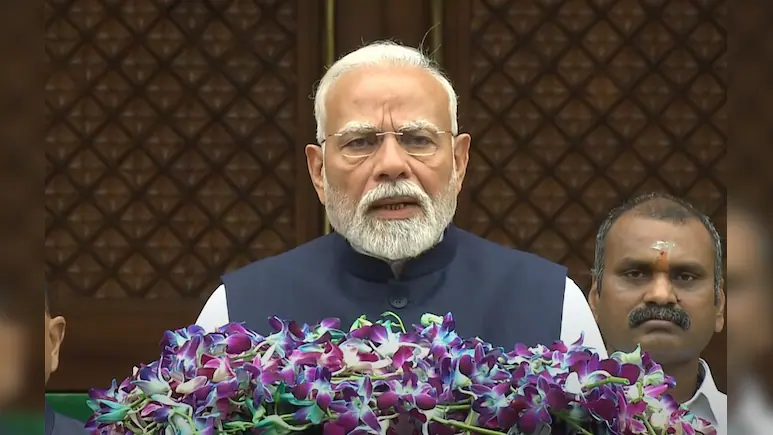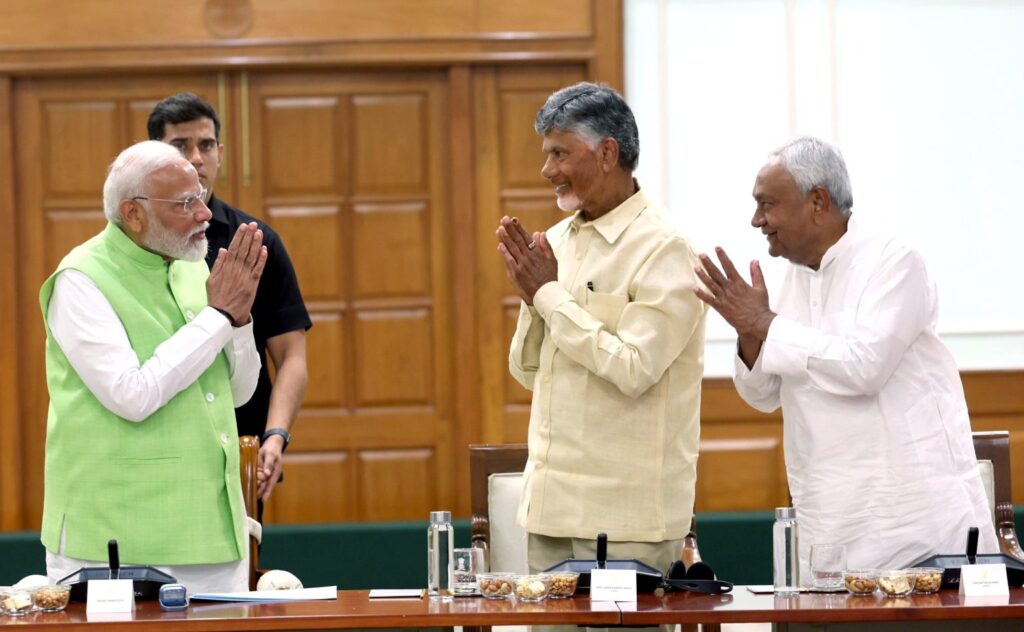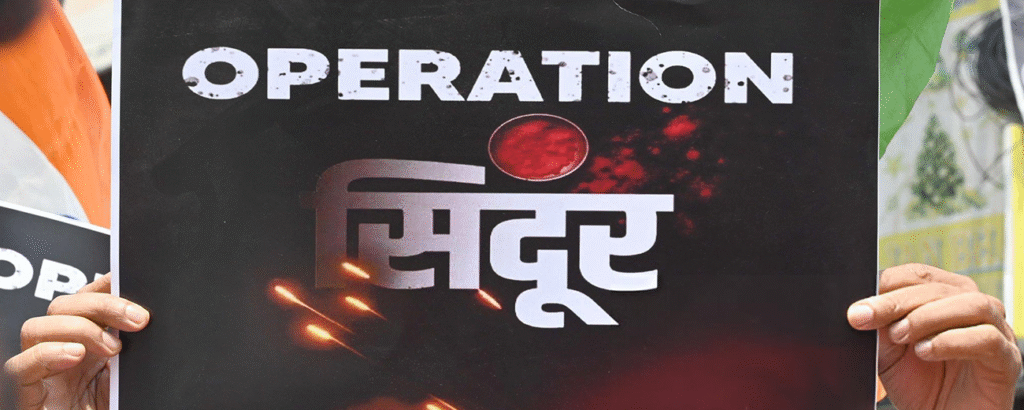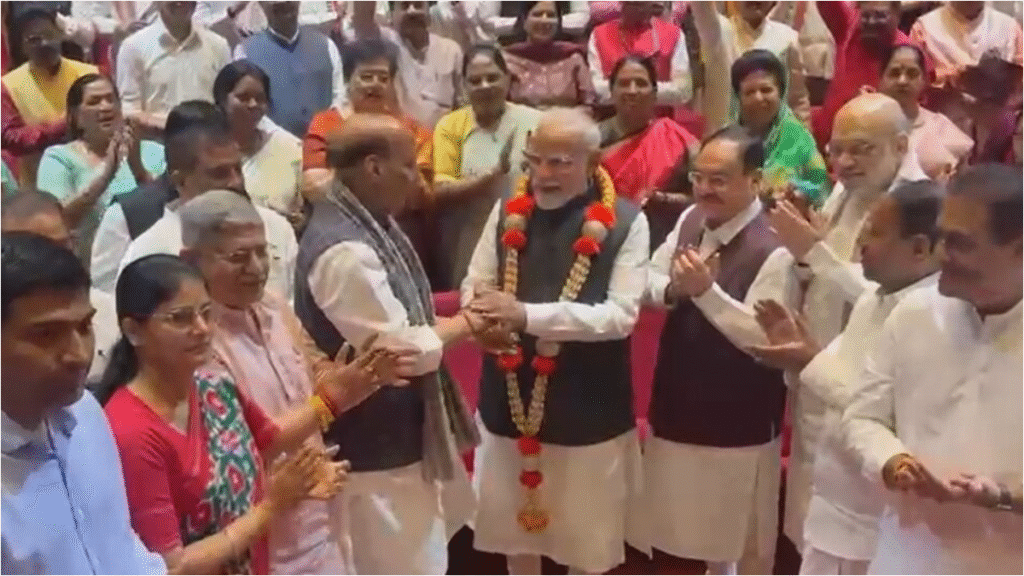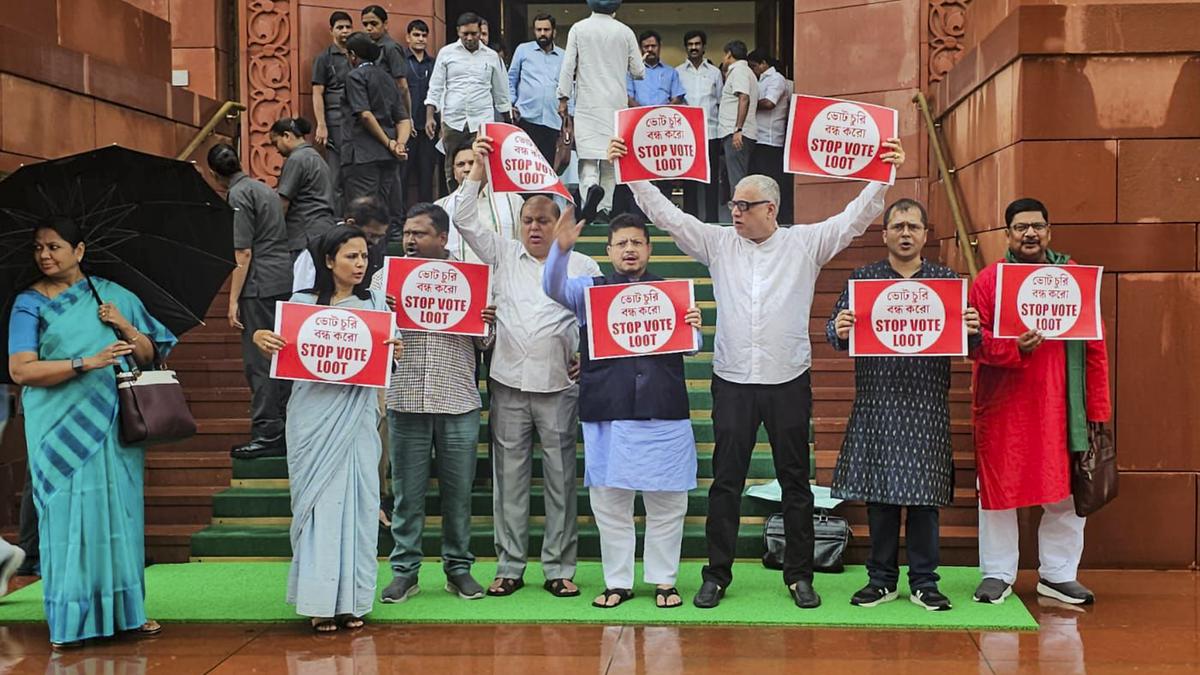Introduction: A Meeting Marked by Silence and Significance
On August 5, 2025, Prime Minister Narendra Modi will arrive at the NDA Parliamentary Party meeting, and this time, it will mark a turning point in the ruling coalition and Indian politics as a whole. It is not merely another ordinary gathering of the MPs that takes place after a visible break. It is proceeding in the environment of a precharged political landscape, the national security fears, institutional impulsive question, and initiation of the Vice-Presidential races.
The article takes a deeper look at the importance of this confluence, the urgent political-historical context, this military counter to terrorism that will presumably be hailed as a celebration and the strategic realignments that may delimit the future of the BJP-led NDA. Embedded within it is the same analysis of the parliamentary environment where the Opposition is becoming bolder and the balance of power emerging after the 2024 Lok Sabha polls.
Background: A Parliament Divided, a Nation Watching
Disruption, dissent and the inability to move legislation, have marred the Monsoon Session of Parliament in India of 2025. The have-it-your-way protests of the Opposition of the poll Commission Special Intensive Revision (SIR) of the electoral rolls in Bihar have brought elections to a de facto standstill. Time that ought to have been spent discussing important policies, budgets and changes has ended up being a riot of shouting matches, walkouts and adjournments.
In this impasse, it has been made possible to conduct only one major debate in the Lok Sabha on the recent Pahalgam terror attack and the resultant Operation Sindoor. Such a discussion represented a fleeting, but significant consensus since the nation was shocked by the deaths of soldiers and in celebration of the military retaliation. And it is in this cancerous environment of emotions and politics that Prime Minister Modi will address the MPs of the NDA.
The Strategic Timing: Why This Meeting Matters Now
1. Post-Terror Response Felicitation
A formal felicitation of Prime Minister Modi over the rapid military action of India against the Pahalgam terror stake that was launched by the government is one of the key moments expected in the August 5 meeting. The retaliatory operation Sindoor has already been framed by the government as a decisive move to send messages across the border to hostile parties. A political capital is likely to be attained out of the success of the operation to consolidate political capital within the NDA and to position strong leadership of the party in the coming Vice-Presidential elections and future state elections.
It is more than a ceremonial kind of symbolic felicitation. It reinforces inside party spirit, harmonizes coalition associates to a leadership articulation, and reestablishes command in the wake of mounting Opposition interest.
2. Precursor to Vice-Presidential Election Strategy
Tactical considerations are marked by that meeting being placed only days out ahead of the Vice-Presidential nomination process, which runs up through August 7. The formation of the electoral college with 782 members of Lok Sabha or Rajya Sabha, the comfortable majority of the NDA in the incoming government, and the victory in the election could be viewed as already settled and guaranteed. Still, the control of political image and message is instrumental.
The speech by the Prime Minister is most likely to present a larger context to the choice of NDA nominees and also support cohesiveness among the alliance allies like the TDP, JD(U), and LJP (Ram Vilas). The issue facing a post-majority political environment is maintaining coalition loyalty and this gathering may act as a renewal of coalition commitments.
3. Coalition Governance in a Post-Majority Era
After the 2024 Lok Sabha elections, the BJP cannot enjoy a majority alone. Only through the support of its allies was it able to cross the halfway mark. This turn of events has rendered coalition handling and internal alliance mobilization both much more important than during the earlier Modi terms.
That meeting of August 5 is just the second all-enlarged meeting of the NDA Parliamentary Party since the last such address of the Prime Minister of July 2. The lapse in meetings with its coalition MPs had brought into question the government engagement strategy with those MPs that lasted months. This reversion of such interactions can imply a more aggressive practice of alliance governance in the future.
The Political Backdrop: Erosion, Expansion, and Engagement
Opposition Strategy: Targeting the ECI and NDA’s Moral Legitimacy
The Opposition has of late upped its rhetoric fuelled by its doubts in the neutrality of Election Commission of India regarding the Special Intensive Revision of electoral rolls in Bihar. Mass protests and disruptions of the parliament have been caused by the accusations of gerrymandering and manipulation of the voter list.
Although such protests may have a lack of procedural teeth, they have overcome intolerable status in the popular rhetoric. The speech by the Prime Minister can be an attempt to overcome this narrative by framing the government as a victim of politicised obstructionism, and at the same time protecting the integrity of institutions.
The Governance-Politics Equation
Mr. Modi also can not be avoided to touch on issues pertaining to governance such as development of infrastructure, defence preparedness, rural outreach, and economic stability. Such themes are likely to be packaged as indication of how the government is committed to national development irrespective of Opposition obstacles.
When India is going through global economic headwind conditions, as well as the regions and security threats, and internal social changes, the ability to display some vision and control by the Prime Minister is always in question. The 5th August meeting will provide an opportunity to rebalance policy communication and political mobilisation.
Emphasis on Parliamentary Discipline and Messaging
Conventionally, Mr. Modi does not just convene such meetings to brief the MPs only, but also to motivate them through stories and talking points that suit their respective constituencies. This role is even more important in the light of the interrupted state of the ongoing parliamentary sitting.
The Prime Minister looks forward to informing MPs regarding the most crucial bills of the government, strategies towards dealing with national security concerns, and the likely opposition strategies. He can demand that MPs increase the efforts made by the government by getting them into the local media, by social means and by direct contact to the voters as the political season begins with elections in different states approaching.
Operation Sindoor and the Politics of National Security
The terror attack at Pahalgam that led to the unfortunate death of a good number of Indian soldiers shook the national consciousness. The slew of the surgically advanced Operation Sindoor set in motion a few days later was led with precision, with the government projecting it as a message of zero tolerance on cross-border terrorism.
The military activity has been said to have neutralised high-value terrorists and impeded the intended routes of infiltration. Defence analysts have praised efforts between the intelligence services, the military, and the policymakers in the centre government. Prime Ministerial felicitations with the operation confirm the role national security has played as a pillar of his political brand.
This gives the NDA the opportunity to capture high grounds in the debate- the debate should no longer dwell on controversies such SIR protests but rather on its mighty handling of terrorism.
Vice-Presidential Election: Power, Position, and Perception
Although the post of the Vice-President is constitutionally restricted, with the main powers being the presiding over the Rajya Sabha, the political consequences of the upcoming election cannot be described as insignificant. Any candidate elected by the NDA will represent ideological unity and strategic aspirations of the alliance.
Should the Opposition field a strong candidate the election can be an acid test on issues involving democratic accountability, the position of Rajya Sabha and federal representation. Therefore, it is important that there is agreement and transparency within NDA circles, and the August 5 event is bound to determine the trend of this.
Parliament as a Battlefield: From Debate to Deadlock
The near-washout of the Monsoon Session except on the Pahalgam debate is an alarming sign in the Indian parliamentary system. As the two main national coalitions tend to confront each other performatively more than in productive co-operation and involvement, the legislative process becomes more and more under pressure.
Recent developments reached their peak when the Prime Minister can use his speech to request decorum, dialogue, and orderly legislative behavior. Meanwhile, it is also expected that he should castigate what he denotes as obstruction on account of obstruction which is being experienced with the Opposition failing to be involved in a number of parliamentary committees and working groups.
Such an ambivalence of purpose, in messaging, inviting unity and laying blame simultaneously, has been characteristic of Mr. Modi in his parliamentary broadcasts, but they are likely to be crafted further, considering the stakes at this particular meeting.
Navigating a Delicate Political Crossroad
The NDA Parliamentary Party meeting on August 5 is not just a restoration of a political routine. It is a test run of the ruling coalition, the leadership appeal of the Prime Minister in a post majority era, and stability that can be presented by the NDA under the shadow of the Opposition strife and the fears of the population.
The eyes of not only his party or alliance but the entire political set up will be on Prime Minister Narendra Modi as he gets ready to speak. His statement may set the tone of the rest of the Monsoon Session, the election of the Vice President and even the counting down to the second set of state assembly polls.
In a world where nothing is apolitical and every snub is significant, such an encounter may provide clues to the strategy, priorities and internal self-assurance of the ruling coalition.
The events of the day of August 5, 2025 might very likely define the parameters of Indian politics in the days to follow.

